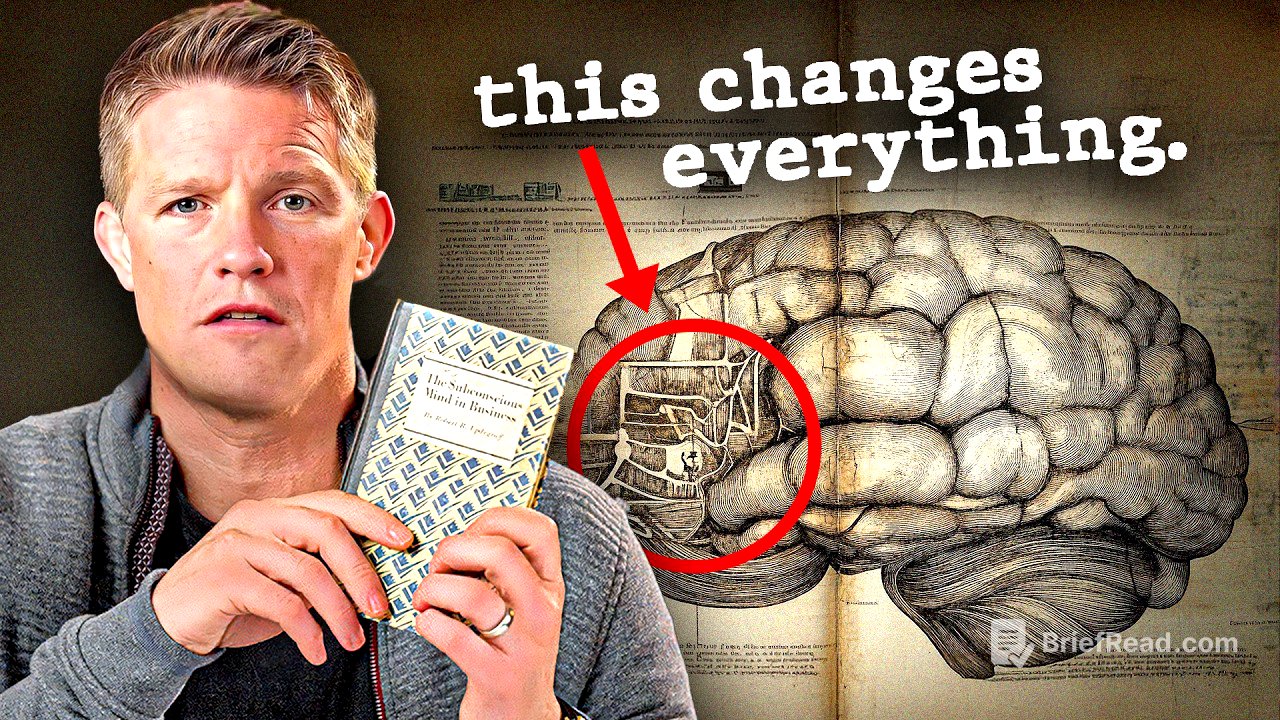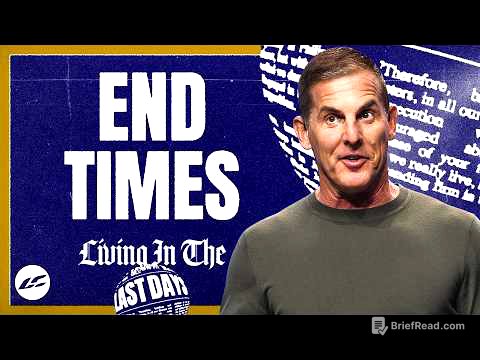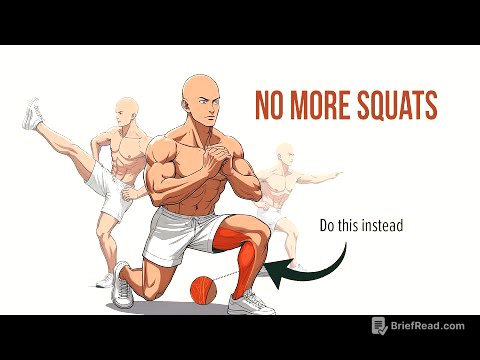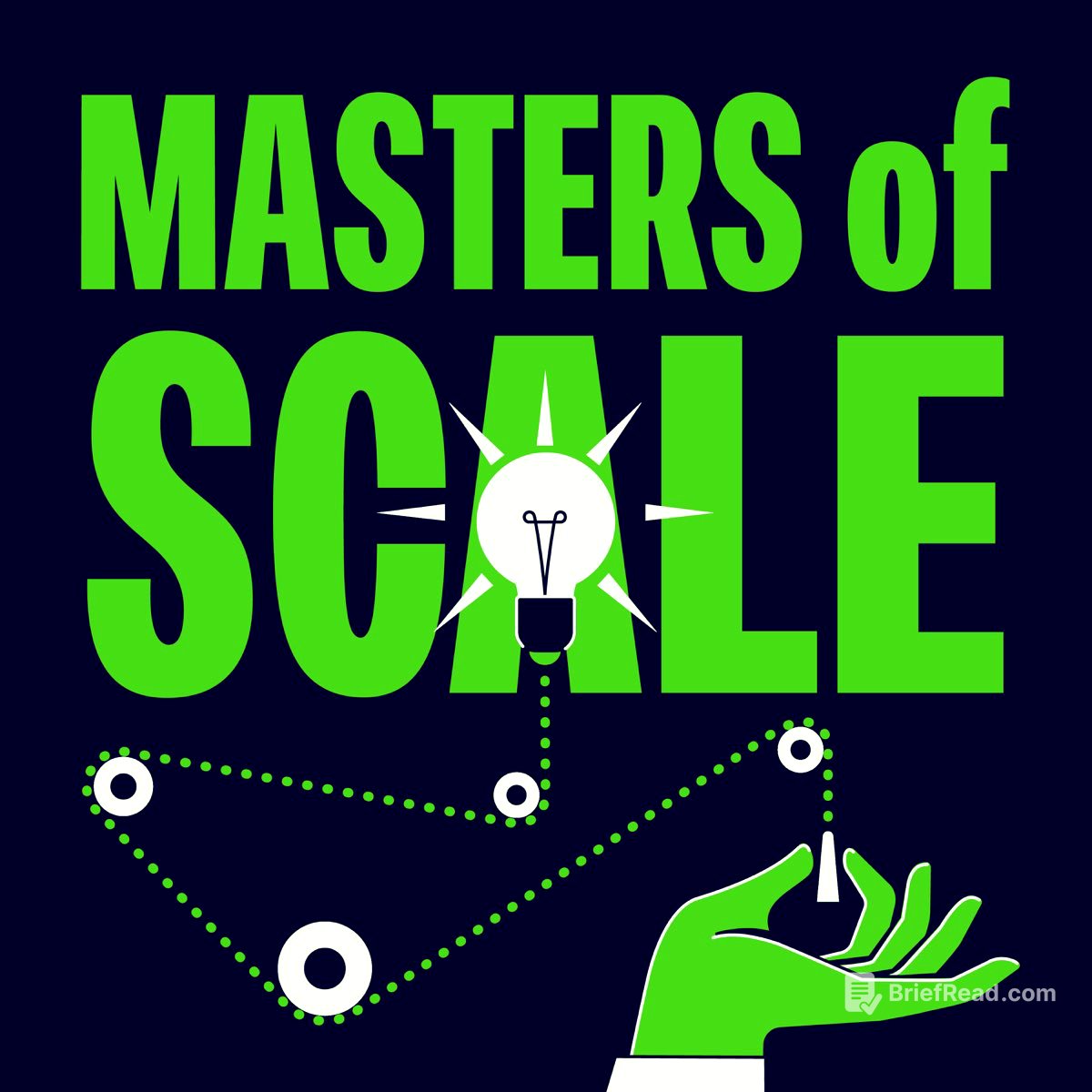TLDR;
Russell Brunson discusses the importance of the subconscious mind in business, drawing insights from a rare book, "The Subconscious Mind in Business." He emphasizes that success is more about mindset (90%) than tactics (10%), highlighting how subconscious beliefs can limit income and creativity. Russell shares personal experiences and anecdotes, including advice from Tony Robbins, to illustrate how shifting one's mindset and proximity to successful individuals can lead to breakthroughs. The book suggests practical techniques, like a six-hour workday, to tap into subconscious problem-solving and creativity.
- Success is 90% mindset and 10% tactics.
- Subconscious beliefs act as a personal thermostat, limiting potential.
- Proximity to successful individuals can shift mindset and beliefs.
- Detaching from conscious work can unlock subconscious problem-solving.
Introduction to a rare book on subconscious mind in business [0:00]
Russell Brunson introduces a rare book titled "The Subconscious Mind in Business" by the author of "Obvious Adams". He found it for a low price because it's relatively unknown. Russell explains that the book aligns with his interests, bridging the gap between subconscious selling and using the subconscious mind to achieve personal goals. He considers it a valuable find that has influenced how he structures his workday.
How the book aligns with Russell's own business journey [0:39]
Russell explains that the book is a short, quick read filled with valuable insights that have changed his perspective on structuring his workday. He notes that many people in the business world tend to overlook the importance of mindset. The book's focus on the subconscious mind in business resonates with Russell's own experiences and teachings on subconscious selling.
Tony Robbins on mindset vs. tactics [1:25]
Russell recounts a conversation with Tony Robbins after a Funnel Hacking Live event, where he expressed frustration that attendees weren't achieving the success he felt they should, despite providing them with the best tactics and frameworks. Tony Robbins responded that success is 90% psychology and 10% tactics, emphasizing the importance of mindset. Robbins highlighted that people often want to focus on tactics but need to reframe their mindset for true success.
Why mindset determines entrepreneurial success [2:17]
Russell reflects on his 25 years of experience coaching entrepreneurs, noting that success isn't determined by intelligence, looks, or resources, but by the ability to control one's mindset. He draws a parallel from his wrestling background, where he observed that athletes with superior skills sometimes lost due to psychological factors. He emphasizes that while tactics are important, mindset is the critical factor that determines success in business.
Personal income belief ceilings and mindset breakthroughs [3:30]
Russell discusses how personal beliefs can create income ceilings, using his own experiences as examples. He recalls how he was surprised to discover he had made six figures early in his career because he subconsciously believed that was a significant achievement, as it was the income level of his father. He also shares how he once considered wanting to make $10 million a year "dumb," revealing his limiting beliefs about wealth and its purpose.
The role of subconscious beliefs in income growth [5:00]
Russell explains that subconscious beliefs often limit income growth, and these beliefs are not always apparent until they are broken. He shares that he sought interventions from Tony Robbins to address his own limiting beliefs. He realized that his beliefs about money and success were holding him back from reaching higher levels of achievement.
Proximity to success and shifting mindset [6:02]
Russell recounts advice from Tony Robbins about the importance of proximity to successful individuals. Robbins advised that the thinking that got Russell to a certain level would not get him to the next level. He emphasized that being in proximity to people at the next level would shift Russell's beliefs, mindset, and subconscious mind, enabling him to achieve greater success.
The power of subconscious problem-solving [6:41]
Russell discusses how the book highlights the subconscious mind's role in creativity and problem-solving. He describes the phenomenon of struggling to solve a problem consciously, only to have the solution appear suddenly when the mind is relaxed, such as in the shower. The book suggests creating opportunities for the subconscious mind to work by disengaging from active work.
Russell’s injury and its creative impact [8:06]
Russell shares a personal anecdote about how a recent injury, which forced him to take a break from his usual workaholic schedule, led to a creative breakthrough. Unable to use his arms, he spent time thinking and daydreaming, which allowed a solution to a pressing business problem to surface within just 15 minutes. This experience reinforced the book's teachings about the power of disengaging to unlock subconscious insights.
Subconscious beliefs as a personal thermostat [10:12]
Russell explains that while the book discusses using the subconscious mind for creativity, it's also important to understand that subconscious beliefs determine one's current level of success. He references Tony Robbins' analogy of the subconscious mind as a thermostat, which regulates one's performance and income to align with established beliefs. He emphasizes that identifying and breaking limiting beliefs is crucial for achieving greater success.
Final thoughts and link to Russell's book notes [11:58]
Russell concludes by recommending "The Subconscious Mind in Business" as a valuable resource for increasing creativity and breaking through sticking points. He encourages viewers to access his notes on the book, which include chapter-by-chapter insights, quotes, examples, and case studies, to help them implement the book's principles in their own workdays.









